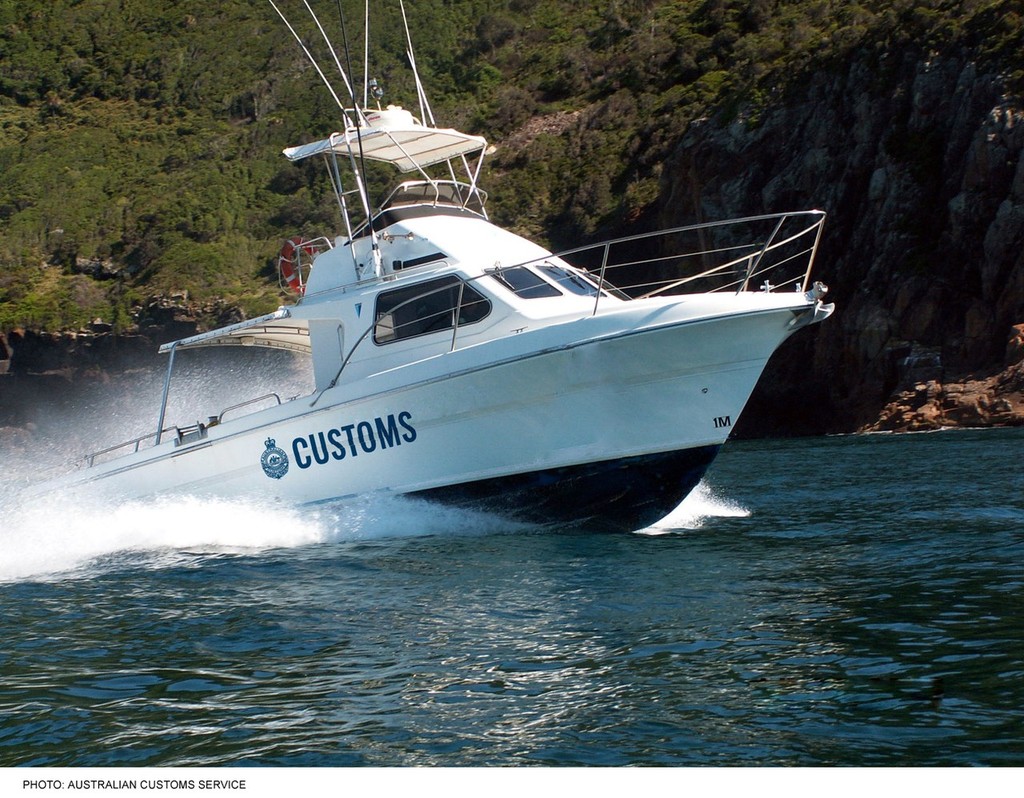Australian Customs - can they board your yacht without permission?
by Sail-World Roundup on 28 Oct 2010

Customs vessels - confusion about when they can board without permission SW
If you are spending a lazy weekend on a yacht, or sailing between ports, or if you have just arrived from overseas, can Australian Customs board your yacht to make a search without your permission and without a warrant?
According to civil liberties lawyer Terry O'Gorman, the answer from the Australian Customs cannot be an s an unequivocal 'YES!'
The publisher of one boating magazine The Coastal Passage, Bob Norson told Kate Dennehy of the Sydney Morning Herald that while some yacht owners thought it fair that customs officers boarded boats when they had suspicions of criminal activity, many believed they abused their powers.
He said many international sailors were bypassing Australia because of the reputation of customs officers and that the economy was the loser.
‘‘If terrorists were known to attack by yacht I guess we would be the safest nation on earth but while Customs impose on this law-abiding community on a daily basis, real risks to the country go unattended,’’ he said.
‘Yachties should be entitled to the same peace and quiet all other citizens expect.’’
Mr O’Gorman said last week he ‘‘strongly disputed’’ the service’s claim that its officers could board privately owned Australian vessels anywhere, any time in Australian waters without an owner’s permission.
Australian and foreign yacht owners have objected to alleged ‘‘offhand and aggressive behaviour’’ by Customs and Border Protection officers who have demanded to board their boats.
A customs spokesperson has told another newspaper, The Sun-Herald, that there were several legislative bases under which officers could board privately owned recreation vessels without the owner’s permission.
‘‘Primarily these powers are derived from the Customs Act 1901 and in particular sections 184A(3), 185 and 187 would all apply,’’ the statement said.
‘‘None of these powers would require officers to obtain warrants or the owner’s permission before completing boarding of such vessels.’’
But Mr O’Gorman, who is vice-president of the Queensland Council for Civil Liberties, says, '‘My view after reading the act is that Customs does not have the power to board Australian yachts in Australian waters without the owner’s express permission,’’ he said.
‘‘Yachties are entitled to argue that the Customs Act protects their right to privacy.’’
He said the officers must have ‘‘reasonable suspicions’’ of criminal activity before boarding without permission.
'‘Yachties aren’t second-class citizens just because they’re travelling on a boat and they have just as many rights to privacy as people living in houses,’’ he said.
The Customs Act is both complex and convoluted, with many amendments.
Section 184A(3) relates to powers given to requests to board Australian vessels outside territorial waters.
Section 185 relates to powers when an officer reasonably suspects that the person is involved in a customs offence, and it allows them to arrest without a warrant and seize narcotics or examine goods.
Section 187 relates to powers relating to the bringing into Australia of goods that are not meant for personal consumption.
When the same publication sought clarification from the Home Affairs and Justice Minister, Brendan O’Connor, he referred the matter back to the Customs and Border Protection Service. A spokesman for the service said it stood by its legal opinion.
Mr O’Gorman then said yacht owners should not have to ‘‘undergo the trauma of a court case’’ or disrupt their travels to test the law, and that 'Yachties shouldn’t have lesser rights than people who live in houses.’’
If you want to link to this article then please use this URL: www.sail-world.com/76260